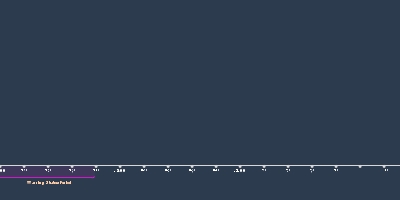1 Jan 587 Jahr v. Chr. - Prophet Jeremiah
Beschreibung:
Jeremiah witnessed the final destruction and the exile.Now, Jeremiah preached the inevitable doom and destruction of the nation because of its violation of the covenant, which was the very charter for her existence, and his descriptions were quite vivid and quite terrifying. He denounced Israel's leaders, the professional prophets in particular with whom he has many encounters. The professional prophets are liars, he says, because they prophesy peace. He has some negative references to priests as well, but he's especially critical of King Jehoiakim who's the son of Josiah.
Thus said the Lord of Hosts, the God of Israel: Mend your ways and your actions, and I will let you dwell in this place. Don't put your trust in illusions and say, "The Temple of the Lord, the Temple of the Lord, the Temple of the Lord are these buildings." No, if you really mend your ways and your actions; if you execute justice between one man and another; if you do not oppress the stranger, the orphan, and the widow…You hear the language of Deuteronomy right? Those three are always together in Deuteronomy, drawing very heavily on the same language.
So he attacked this doctrine of the inviolability of Zion and that would have been iconoclastic to say the least. But he pointed to history as proof for his assertion. He cites the example of Shiloh as an example. You remember during the period of the Judges when the Ark of the Covenant was peripatetic and would stay at different places, but for some time it came to rest at Shiloh with the priest Eli and his sons. And in that time, the Philistines managed to destroy the sanctuary and capture the Ark and carry it off into Philistine territory. So the presence of the Ark of the Covenant is no guarantee of anything, and the belief that God would not allow his temple, his city, his anointed ruler to be destroyed, Jeremiah says, is a deception. It's an illusion.
His political message resembles very much the message of his predecessors. He says that the nation's pathetic attempts to resist the great powers and to enter into alliances with the one against the other--these were all completely futile. And to dramatically illustrate the destruction and the slavery that were inevitable, he paraded around Jerusalem, first in a wooden yoke and then in an iron yoke. He does this in chapters 27 and 28. This is a symbol of the slavery, the yoke of the master that is to come.
In chapter 27:6 he claims that God has power over all the Earth and has given the Earth to Nebuchadnezzar of Babylon, God's servant. As you can imagine, referring to the destroyer of the nation as God's servant would have been shocking, not to say dangerous.
So Jeremiah was rejected; he was despised; he was persecuted by fellow Judeans. Naturally, they would have seen him as a traitor. He was flogged, he was imprisoned. Often in his life he was in hiding, he was a very troubled person and he lived in very difficult times.
Yale Lectures Pg. 244-249
Zugefügt zum Band der Zeit:
Datum:
1 Jan 587 Jahr v. Chr.
Jetzt
~ 2614 years ago
